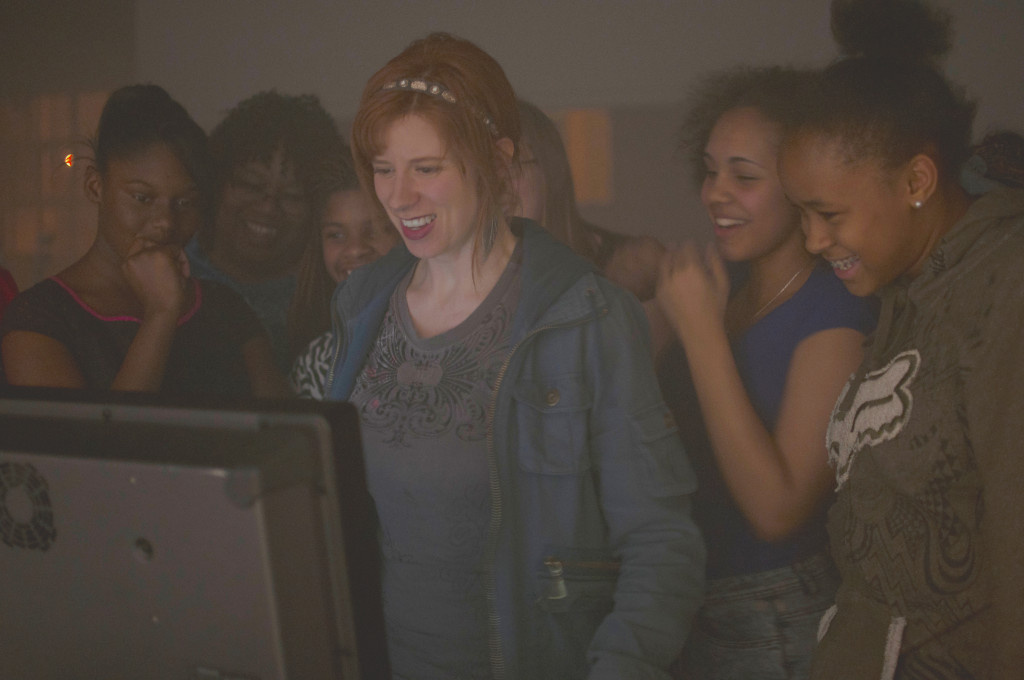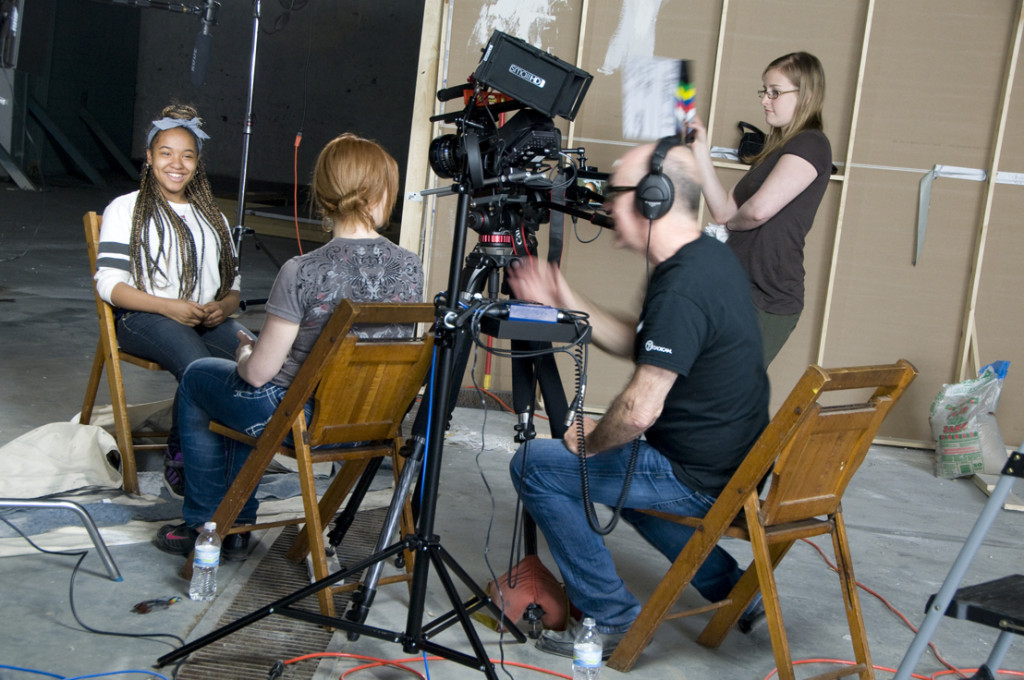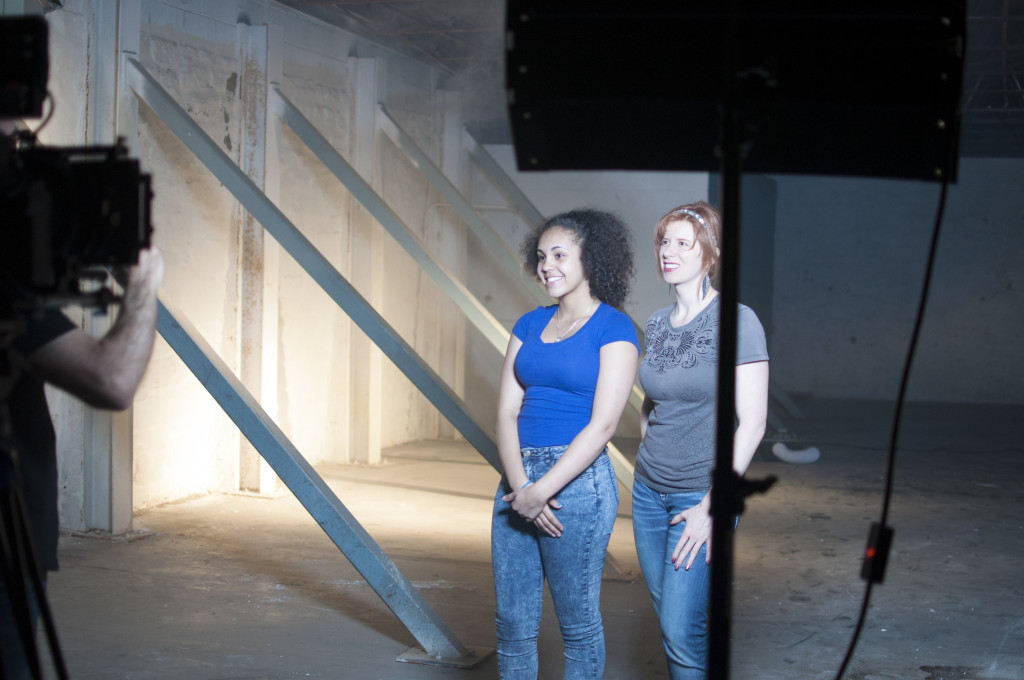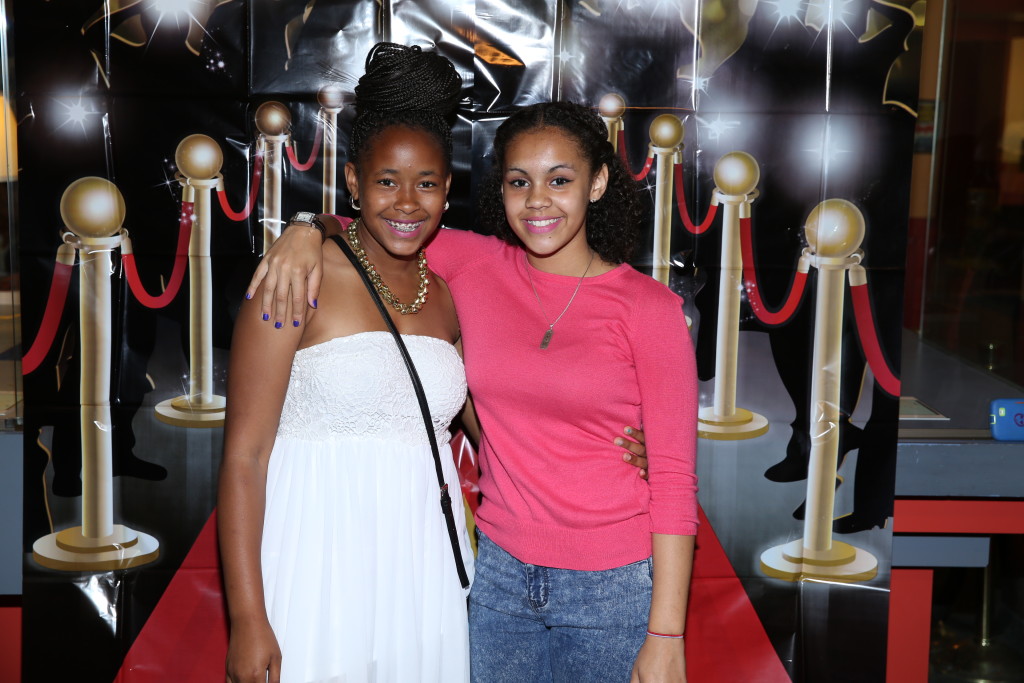I think one of the challenges about social justice issues, and social justice films, is how inured we have become to them. Though we as Americans can fairly be accused of apathy—when one looks at voter turnout, for instance—I believe most people do care about justice. But so many of us feel overwhelmed by the sheer volume of need, the expanse of injustices perpetrated around the world—from Selma to Syria—that we don’t know where to begin. Though we want to be “part of the solution,” we feel ill equipped to make a dent in such seemingly insurmountable problems.
When I was approached by Cynthia Saddler, co-founder of Girls Leading Our World, Inc. (GLOW), I, too, felt hesitant to commit. Cynthia reached out to me because she knew I was on the board of Kansas City Women in Film & Television (KCWIFT), a dynamic group of men and women, which works to empower, promote, and mentor women in film, television, and new media. Cynthia was drawn to KCWIFT because of all the organization was doing at the time to encourage female screenwriters, and she was hoping KCWIFT could help her make a movie, too. Her movie, however, would not require a script. Her movie would instead document part of story that was already playing out in the heart of Kansas City’s urban core.
I say I hesitated to commit to helping tell the story of GLOW not because I found it uncompelling but because it came with no budget. GLOW, which is sustained by an all-volunteer staff, uses every dollar it receives to serve girls in need. So money for a film simply was not in the picture. And, though I know many hardworking filmmakers who often donate their services at discounted rates, I don’t know many who can afford to work for free. But…the seed had been planted.
The more I learned about GLOW, the more I wanted to do anything I could to support its important work with young women in Kansas City.
When KCWIFT decided to apply for a Missouri Arts Council grant, we included a short film about GLOW in our proposal because GLOW’s mission of empowering girls aligned so well with KCWIFT’s mission of empowering women. And, in the summer of 2013, we learned we had been awarded enough funding to make the film a reality.
 Once funding was secured, I knew exactly who I wanted to direct the film. Cara Myers is well known in Kansas City’s film scene. She brings a unique artistic touch to every project she takes on, and she has another attribute that made her uniquely suited to the job. Cara routinely does work for non-profits in the KC area and is gifted at connecting with viewers on an emotional level. But, perhaps even more importantly, she also is a female filmmaker with her own successful business. This was particularly important for the GLOW project because
Once funding was secured, I knew exactly who I wanted to direct the film. Cara Myers is well known in Kansas City’s film scene. She brings a unique artistic touch to every project she takes on, and she has another attribute that made her uniquely suited to the job. Cara routinely does work for non-profits in the KC area and is gifted at connecting with viewers on an emotional level. But, perhaps even more importantly, she also is a female filmmaker with her own successful business. This was particularly important for the GLOW project because
part of GLOW’s mission is to expose its girls to a variety of professional and educational paths and to introduce them to positive, successful women who have found ways to use their passions to pay their bills.
Many of GLOW’s girls do not have positive adult role models; many come from families where no one has attended college; most live in impoverished areas; most lack access to accredited schools; several live in households where food is scarce and transportation is limited; and many have been sexually assaulted or abused.
Without the intervention of programs like GLOW, many of these girls might never know that they, too, can attend college, can have a profession, can live free of violence, and can lift themselves out of poverty. But each week GLOW reinforces for its girls that there are people in the world who care about them, who believe in their potential, and who are willing to help them set and achieve their goals.
Rather than focusing on what’s wrong in girls’ lives, GLOW focuses on what’s right within each girl. The program is designed to help girls recognize and build upon their own strengths.
These kids are incredibly resilient, bright, and just as fun and frustrating as any of their more privileged peers. But what many lack is a “village” of caring, functional adults prepared to assist them in their journey to adulthood. GLOW bridges that gap. It provides the girls with a network of individuals who reinforce on a weekly basis that they have the potential not just to participate fully in society, but to be leaders of society.
Through weekly programming, the girls gain entrepreneurial tips from professionals working in a wide array of fields—from musicians to veterinarians, and from environmentalists to attorneys—and they often learn how under-represented women of color are in certain professions.
Seeing examples of women at work in the world is essential to expanding the GLOW girls’ worldview, which is why I was delighted to work with Cara in the making of this film.
 Throughout the making of the short documentary, Cara was creative, assertive, very much in charge, and communicated her artistic vision in a way that was sensitive to GLOW’s desire to highlight the girls’ strengths. It’s not easy to get teens to open up, even in the best of circumstances. Add a camera, lights, and crew to the mix and kids are even more likely to clam up. Yet Cara was able to coax the girls into conversations that weren’t always comfortable.
Throughout the making of the short documentary, Cara was creative, assertive, very much in charge, and communicated her artistic vision in a way that was sensitive to GLOW’s desire to highlight the girls’ strengths. It’s not easy to get teens to open up, even in the best of circumstances. Add a camera, lights, and crew to the mix and kids are even more likely to clam up. Yet Cara was able to coax the girls into conversations that weren’t always comfortable.
And most importantly, Cara was conscientious throughout production to address the challenges that the girls face in a way that ensures the girls are not defined by those challenges. By no means did we want to make a film about “disadvantaged girls in the urban core.” Rather, this film is about incredibly strong young women who are emerging from difficult circumstances to become future leaders.
Every time Cara gave direction to her crew, adjusted lighting on the set—literally called the shots—the girls of GLOW had yet another opportunity to see how they, too, can call the shots in their own lives.
For me, that’s what social justice is about: empowering individuals and communities to gain agency in their own lives.
The girls may not even realize they’re learning to be agents of social change. But every week they come to GLOW and hear from volunteers, mentors, and guest speakers about the need for more people of color to become veterinarians, how community gardens are established and maintained in their neighborhoods, how those neighborhoods have fought for environmental justice and equal housing opportunities, and, yes, every time they see a woman behind a camera, they take yet another step toward self-empowerment. They see their own potential reflected in the work of others who take time to invest in them each week.
And that’s the beauty of getting past “social justice paralysis,” that numb feeling that renders us unable—or perhaps just hesitant—to even try to make a difference. It’s not easy. But it’s also not as hard as you might think.
The path to social justice just might mean making a relatively small investment in a kid’s life.
A couple of hours a week may not seem like much, but the consistency of care that a program like GLOW can provide is essential for these girls’—for all children’s—continued success. Sometimes engaging in social justice issues means just showing up. Just showing up and showing you care. Showing kids you believe in them and want a bright future—for them and for yourself as well. After all, as we age, we will inevitably come to depend on the leadership of this generation. And a small investment now can pay big dividends in the future.
For those of us involved in the making of this documentary, we’ve already enjoyed a return on our investment.
Seeing the girls’ faces light up when a packed house saw their story projected on a big screen at the film’s premiere last summer was all the critical acclaim I needed.
And a few of the girls who were too shy to participate in the film have since told me that they wished they’d had the courage to speak on camera. Both reactions assure me that Cara and her crew truly did honor how strong and smart these young women are. It also reaffirms how important it is to keep showing up in these kids’ lives, with or without a camera.
I have become a GLOW convert. On any given Thursday night, you are likely to find me hanging with the GLOW girls, and I also mentor a girl one-on-one. Recently I also accepted a position on GLOW’s board and I look forward to showing up for those meetings each month as well. I still feel overwhelmed by the wide-ranging injustices in our world but,
every time I show up for GLOW, I also feel like I’m doing what I can where I can to promote social justice for these girls. Hopefully, as they grow up, they’ll continue to show up for others, too.


